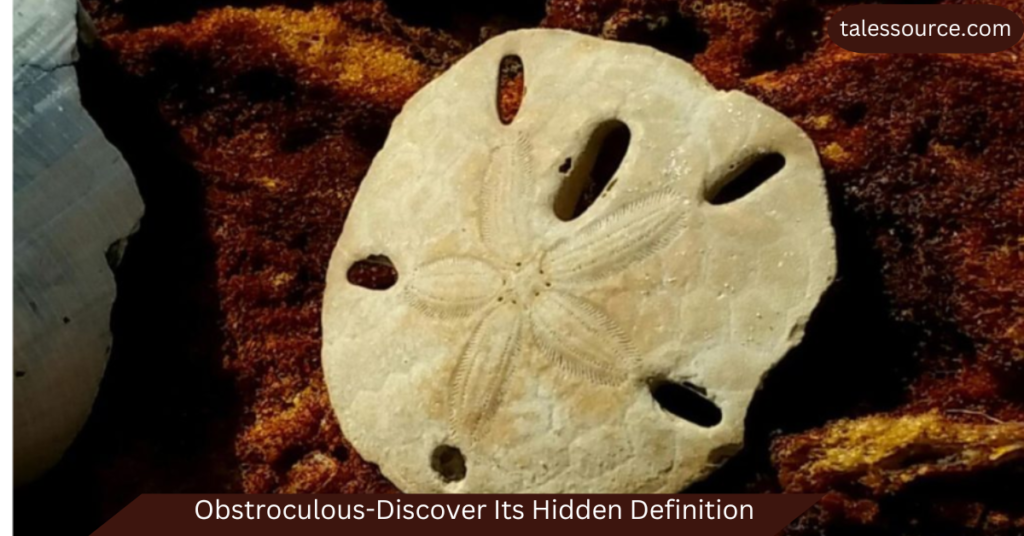Obstroculous-Discover Its Hidden Definition

The English language is a dynamic and evolving entity, with new words constantly being introduced, while some fall into obscurity. Among the vast array of vocabulary, certain words appear to exist in a liminal space—familiar to some, yet unknown or even questionable to others. One such intriguing word is “obstroculous.” Although not found in any major dictionary, the term has surfaced in conversations and writings, leaving many to wonder about its legitimacy and meaning.
In this article, we’ll delve deep into the word “obstroculous,” exploring its origins, possible meanings, usage, and the reasons behind its elusive nature. By the end, you’ll have a comprehensive understanding of this mysterious term and its place in the English language.
What Does “Obstroculous” Mean?
The Enigmatic Definition
“Obstroculous” is a word that doesn’t have a formal definition in recognized dictionaries such as the Oxford English Dictionary or Merriam-Webster. This absence leads to a level of ambiguity about what the term actually means. However, based on its usage in various contexts, “obstroculous” appears to carry connotations of stubbornness, obstinacy, or resistance.
The word might be used to describe a person or situation that is uncooperative, challenging to deal with, or persistently difficult. It could also suggest a defiant attitude, one that is unyielding in the face of opposition.
Possible Origins of “Obstroculous”
Given the lack of official documentation, the origins of “obstroculous” remain speculative. The term seems to be a blend of the words “obstinate” and “spectacular” or “ridiculous,” combining the stubbornness implied by “obstinate” with an exaggerated or flamboyant quality.
It’s possible that “obstroculous” emerged as a colloquialism, a term coined by individuals to describe a particularly difficult or absurd situation or behavior. Over time, the word may have gained traction in certain circles, particularly in informal speech or creative writing, contributing to its sporadic usage.
The Curious Case of “Obstroculous”
Is “Obstroculous” a Real Word?
The question of whether “obstroculous” is a real word is complex. On one hand, it doesn’t appear in any authoritative dictionaries, which are typically the gatekeepers of recognized vocabulary. On the other hand, language is inherently fluid, and words are often used and understood in specific communities long before they gain official recognition.
“Obstroculous” may fall into the category of neologisms—newly coined words or expressions that have yet to achieve widespread acceptance. Alternatively, it could be considered a nonce word, a term created for a particular occasion or context, which might not endure in the broader lexicon.
The Role of Informal Language and Slang
Informal language and slang play a significant role in the evolution of English. Many words that are now part of the standard vocabulary began as slang or regional dialect. “Obstroculous” might be an example of this phenomenon—a term used in certain communities that has not yet been formalized.
The fact that “obstroculous” is used, albeit infrequently, suggests that it holds some meaning for those who employ it. Whether or not it becomes an officially recognized word may depend on its continued use and the influence of the communities that use it.
H1: How “Obstroculous” Fits into the Lexicon
Comparing “Obstroculous” with Similar Words
To better understand “obstroculous,” it’s helpful to compare it with similar words that are already established in the English language. Terms like “obstinate,” “intractable,” and “recalcitrant” convey a sense of stubbornness or resistance. “Obstroculous” may be used in a similar vein but with an added nuance of flamboyance or exaggerated difficulty.
Contexts in Which “Obstroculous” Might Be Used
“Obstroculous” could be employed in various contexts, both formal and informal. In literature, for example, a character might be described as “obstroculous” to emphasize their stubborn or outrageous behavior. In everyday conversation, the term might be used humorously or sarcastically to describe a particularly frustrating situation.
The flexibility of “obstroculous” allows it to be adapted to different situations, which could contribute to its potential staying power in the language.
The Cultural and Social Implications of “Obstroculous”
The Influence of Social Media and Pop Culture
In today’s digital age, social media and pop culture play a significant role in the spread of new words and phrases. A term like “obstroculous” could gain popularity if it were to be picked up by influencers, meme creators, or online communities. The viral nature of social media means that a word can quickly spread across the globe, even if it starts in a small niche.
The Power of Language Innovation
Language is a powerful tool for innovation, allowing people to express new ideas and concepts. The creation and use of words like “obstroculous” demonstrate the creativity inherent in language. Even if the term never becomes mainstream, its existence highlights the ways in which individuals and groups experiment with language to better convey their experiences and perspectives.
The Future of “Obstroculous” in the English Language
Could “Obstroculous” Become an Official Word?
The path to official recognition for any word is uncertain and often slow. For “obstroculous” to become a recognized part of the English lexicon, it would need to see increased usage in written and spoken communication, particularly in contexts that are widely regarded as authoritative.
However, even without official recognition, “obstroculous” could continue to exist as a colloquial term, appreciated for its expressive power in the circles where it is used.
The Role of Language Guardians
Institutions like the Oxford English Dictionary or Merriam-Webster serve as language guardians, deciding which words are included in their dictionaries. Their criteria often include the word’s frequency of use, clarity of meaning, and the contexts in which it is employed. If “obstroculous” were to gain enough traction, it might one day be considered for inclusion.
Conclusion
“Obstroculous” is a fascinating example of the fluidity and creativity of the English language. Although it lacks official recognition, the term has found its way into certain conversations and writings, suggesting that it holds value for those who use it. Whether or not “obstroculous” becomes a permanent fixture in the English lexicon remains to be seen, but its existence serves as a reminder of the endless possibilities for linguistic innovation.
FAQs
What is the meaning of “obstroculous”?
“Obstroculous” is a term that doesn’t have an official definition in major dictionaries. It is generally understood to imply stubbornness, obstinacy, or exaggerated difficulty.
Is “obstroculous” a real word?
While “obstroculous” is not officially recognized in authoritative dictionaries, it has been used in some conversations and writings, suggesting that it is a real word to those who use it.
Where did the word “obstroculous” come from?
The exact origins of “obstroculous” are unclear, but it appears to be a blend of “obstinate” and possibly “spectacular” or “ridiculous,” reflecting a stubborn or flamboyant nature.
How is “obstroculous” used in a sentence?
An example of “obstroculous” in a sentence could be: “His obstroculous behavior made it difficult for the team to reach a consensus.”
Can “obstroculous” be used in formal writing?
“Obstroculous” might be more suited to informal writing or creative works, given its unofficial status. However, it could be used in formal writing if the context calls for a unique or emphatic expression.
Will “obstroculous” ever be added to the dictionary?
It’s possible that “obstroculous” could be added to the dictionary if it sees enough consistent usage in a variety of contexts.
What are some synonyms for “obstroculous”?
Synonyms for “obstroculous” might include “obstinate,” “stubborn,” “intractable,” or “recalcitrant.”
How do you pronounce “obstroculous”?
“Obstroculous” is pronounced as “ob-strok-yuh-luhs.”
Why isn’t “obstroculous” in the dictionary?
“Obstroculous” may not be in the dictionary because it hasn’t yet gained widespread or consistent usage across enough authoritative sources.
Can “obstroculous” be considered slang?
“Obstroculous” might be considered a form of slang or a colloquialism, particularly since it isn’t formally recognized in dictionaries but is still understood by some speakers.





